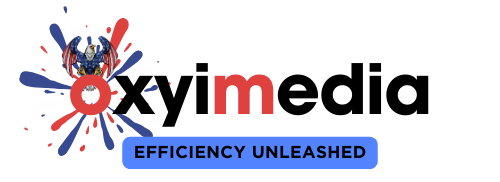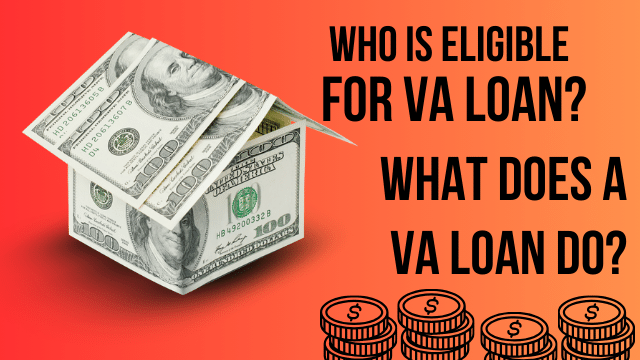VA loans offer a valuable opportunity for military service members and veterans to secure homes without the burden of a down payment. While this benefit is significant, meeting certain criteria related to creditworthiness and income is crucial for approval.
These loans, supported by the U.S. Department of Veterans Affairs, serve as a commendable resource for active-duty personnel, veterans, and some surviving spouses. To be eligible for a VA loan, consider the following qualifications:
- Active Duty:
- You are on active duty and have provided 90 continuous days of service.
- Veteran Status:
- You are a veteran meeting length-of-service requirements, generally 90 days in wartime and 181 days in peacetime.
- Selected Reserve or National Guard:
- Completion of 90 days of active-duty service or six creditable years in the Selected Reserve or National Guard.
- Surviving Spouses:
- You are the surviving spouse of a veteran who died during service or due to a service-connected disability. Remarriage is permissible if it occurred after age 57 or Dec. 16, 2003. Additionally, spouses of service members missing in action or prisoners of war are eligible.
It’s worth noting that exceptions may exist, allowing qualification even if length-of-service requirements are not fully met, especially in cases of discharge for a service-connected disability. The VA provides detailed information, and it’s advisable to check with them for specific details.
However, individuals with an “other than honorable,” bad conduct, or dishonorable discharge may face ineligibility. Despite this, there is an avenue to apply for a discharge status upgrade through the VA.
How to apply for a VA loan?
Applying for a VA loan is a straightforward process that can be completed through various financial institutions such as banks, mortgage companies, or credit unions that offer this type of loan. The application process closely resembles that of other mortgage types, where you provide essential details about your employment, income, and financial status. The lender then evaluates this information to determine your eligibility for the loan.
An essential document for your VA loan application is the VA certificate of eligibility. This document, issued by the Department of Veterans Affairs, serves as proof that you meet the necessary service requirements for obtaining a VA loan. You have the option to request this certificate directly from the VA. Alternatively, a VA mortgage lender can assist you in obtaining the certificate of eligibility, streamlining the application process.
VA loan qualifications: credit, debt and income
Qualifying for a VA loan involves a comprehensive assessment of your credit, debt, and income by lenders. This evaluation not only determines your eligibility but also influences the interest rates offered.
Credit Requirements: The VA itself doesn’t establish a specific minimum credit score for loan qualification. However, individual VA mortgage lenders may set their own standards, often falling within the low- to mid-600s range for FICO credit scores.
Additionally, lenders will scrutinize your credit report, with a particular focus on your track record of making timely payments. This aspect plays a crucial role in the overall evaluation of your creditworthiness.
Debt-to-Income Ratio (DTI) for VA Loan
The VA advocates for a debt-to-income ratio (DTI) that does not exceed 41%. However, borrowers with higher DTI ratios may still secure approval by demonstrating an adequate “residual income.” Lenders take this into account when evaluating mortgage applications. Residual income refers to the funds remaining after fulfilling essential living expenses like food, clothing, debts, housing, and other obligations. This holistic approach allows for a more comprehensive assessment of an individual’s financial capacity beyond the conventional DTI threshold.
VA loan down payment requirements
VA Loan Down Payment Guidelines
In most cases, VA loans do not impose a mandatory minimum down payment. However, should the home’s purchase price surpass its appraised value, you might need to cover a portion of the disparity.
In instances where the property exceeds county loan limits subject to VA regulations, a down payment becomes necessary.
In competitive real estate markets where buyer demand outweighs the available homes, a down payment may be essential to stand out. Particularly in bidding situations, a deposit for the seller can serve as a portion of your down payment, demonstrating your earnest commitment as a buyer.
An additional benefit of contributing some funds upfront is the potential reduction in the VA funding fee.
VA loan property requirements
VA Loan Property Standards
The property you intend to purchase must adhere to the VA’s set minimum property requirements, designed to guarantee the safety, structural integrity, and sanitation of homes financed through VA loans.
Once you’ve entered into a contract to purchase a home, the lender will engage a VA-approved appraiser to assess the property’s market value and verify compliance with the established property standards. It’s worth noting that a VA appraisal may also be a requisite when refinancing an existing VA loan.
Eligibility for other VA loans and grants
Eligibility for Other VA Loans and Grants
The VA extends its support to veterans and service members through additional offerings, including housing grants for those with service-connected disabilities and home loans tailored for Native Americans.
Disability Housing Grants
This program provides three distinct grants to assist veterans and service members with service-connected disabilities in acquiring or adapting a home to suit their needs. The Specially Adapted Housing grant is applicable to a home you own or intend to purchase. The Special Housing Adaptation grant is designed for a home owned by you or a family member, or one you plan to buy. The Temporary Residence Adaptation grant is intended for a family member’s home where you are temporarily residing. Eligibility for any of these grants requires a qualifying service-connected disability.
Application for these grants can be completed online through the benefits portal on the VA website or by downloading VA Form 26-4555 and submitting it to the nearest regional loan center.
Native American Direct Loan
The Native American Veteran Direct Loan program aims to assist Native Americans in purchasing, building, improving, or refinancing homes on federal trust land. This program is available to members of specific Native American tribes and their spouses, as well as Alaska Native corporations and residents of Pacific Island territories.
To initiate the process, confirm your native community’s participation in the NADL program, apply for a VA certificate of eligibility, and reach out to the VA regional loan center for your state.
What is the debt to income ratio for a VA loan?
What Is the Debt-to-Income Ratio for a VA Loan?
The debt-to-income ratio plays a crucial role in determining eligibility for VA loans, and for this type of loan, the acceptable debt-to-income ratio is set at 41%. The debt-to-income ratio represents the percentage of your gross monthly income allocated to debts. Specifically, it gauges the ratio of your monthly debt obligations to your gross monthly income.


